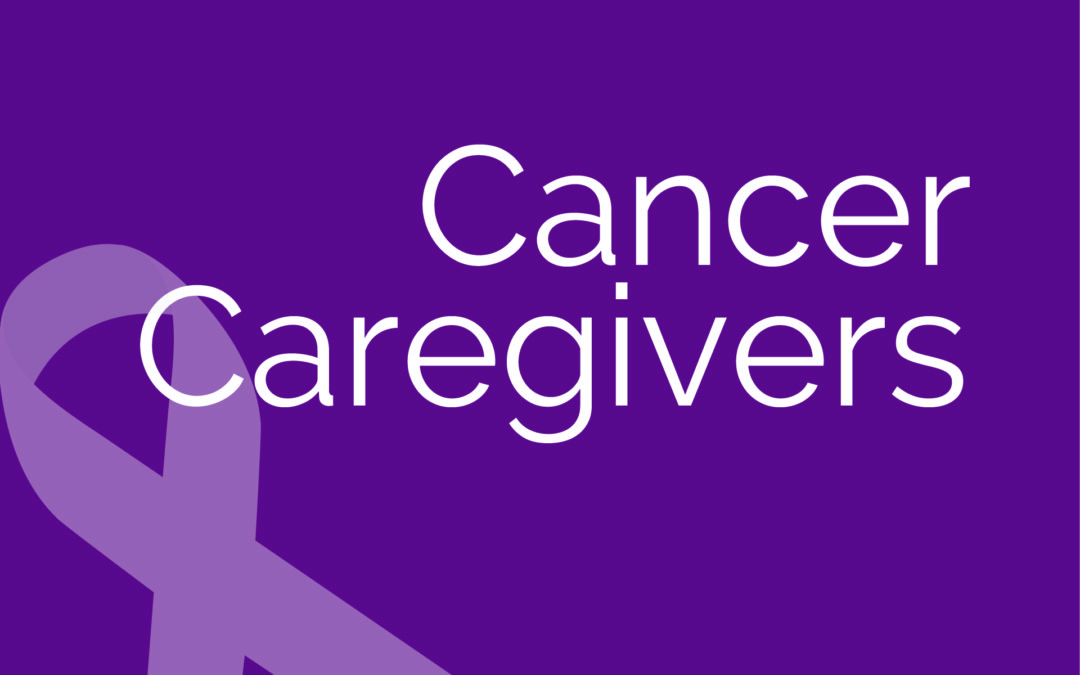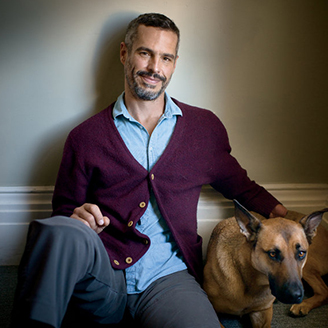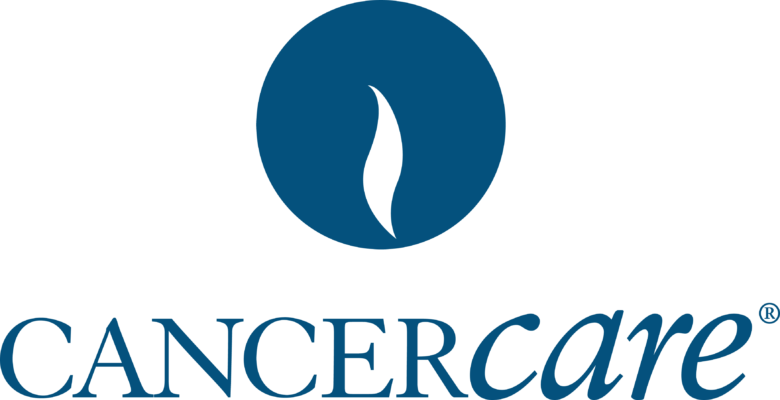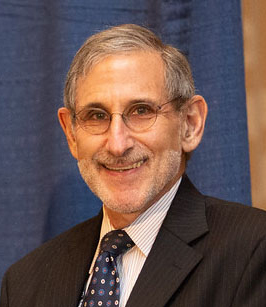
by Alexa Jett | Feb 23, 2021 | Blood Cancers, Cancer Caregivers, Cancer Resources, Men's Breast Cancer, Ovarian Cancer, Prostate Cancer, RMC, Thyroid Cancer, Women's Breast Cancer
Wendy Garvin Mayo, APRN, RN is really popular in the AnCan universe! While you’ll find her at our Cancer Caregivers Virtual Support Group meetings, her resources and wisdom often pops up in many of our groups.
Wendy had a great blog post to share from our friends at Cure. Titled “The Cancer ‘Bombshell’: 8 Tips for Devoted Caregivers“. With great practical advice and commentary, we’re sure you will find this incredibly helpful. My caregiver, my mom Lisa, will especially appreciate tip number 8. Hint: it’s about her favorite food.
For information on our peer-led video chat CANCER CAREGIVERS VIRTUAL SUPPORT GROUP, click here.
To SIGN UP for the Group or any other of our AnCan Virtual Support groups, visit our Contact Us page

by Rick Davis | Feb 10, 2021 | Advocacy, Blood Cancers, Brain Tumors, Cancer Caregivers, Cancer Resources, Health Resources, hospice and palliative, Maui, mCRPC, MedaFit, Men 'Speaking Freely', Men's Breast Cancer, Multiple Sclerosis, nmCRPC, Nutrition, Ovarian Cancer, Prostate Cancer, Recent News, RMC, Sarcoidosis, Thyroid Cancer, Webinars, Women's Breast Cancer
Dr. B.J. Miller’s Prognosis Declaration Can Revolutionize the Quality of Your Treatment Path
One of the most compassionate, influential and remarkable docs I have had the great fortune to encounter since I got into this biz, is Dr. BJ Miller. We are honored to have BJ on our Advisory Board, and while we rarely speak live, I consider him a friend.
More significantly, a couple of men lost to this disease who I have known well, welcomed BJ to their medical teams …. and he made a huge difference to them. In a recent webiinar “Making Medical Decisions”, BJ shared a revolutionary document with us ….BJ’s Prognosis+Declaration
All too often medical teams put their foot in their mouth …. and sometimes unwittingly yours, when they provide an unrequested prognosis for your situation. Some may want to know how serious their disease is .. or how long they have to live; others frequenbtly do not. The Prognosis Declaration offers four (4) options from knowing everything to knowing nothing, or maybe having your caregiver know but not you. You determine what you want to hear, and you give the Prognosis Declaration to your medical team upfront ….. brilliant! The form was developed by one of BJ’s patients who lost his wife to cancer.
The whole webinar, Managing Your Medical Decisons, can be heard here – it’s truly worth a listen.
Dr. Miller, btw, now runs his own non-profit organization The Center for Dying and Living. For many years he has been on the clinical and teaching faculty at UCSF. BJ’s remarkable TED Talk, ” What Really Matters At THe End of Life” now boasts over 12 million views.

by Alexa Jett | Jan 21, 2021 | AYA, Blood Cancers, Brain Tumors, Cancer Caregivers, Cancer Resources, Men 'Speaking Freely', Men's Breast Cancer, Multiple Sclerosis, Ovarian Cancer, Prostate Cancer, RMC, Sarcoidosis, Thyroid Cancer
At our last Cancer Caregivers Virtual Support Group meeting, Wendy Garvin Mayo, APRN, RN brought a wonderful resource to our attention!
Ho’oponopono – is a Hawaiian practice of reflection and forgiveness. On Saturday, January 24rd at 11am EST, Cindy Cooley Brockway and I are hosting a second Morning Shared Journaling Experience that is a reinterpretation of this beautiful practice.
”I’m sorry. Please forgive me. Thank you. I love you.” Gentle, cleansing, creative and refreshing.
Hope you can join us: click the link to join https://us02web.zoom.us/j/89798556209
I’m certain this is a can’t miss event for healing. Thank you so much that you do for our community, Wendy!
For information on our peer-led video chat CANCER CAREGIVERS VIRTUAL SUPPORT GROUP, click here.
To SIGN UP for the Group or any other of our AnCan Virtual Support groups, visit our Contact Us page

by Alexa Jett | Jan 21, 2021 | Webinars
At AnCan, we LOVE friends! And helping you get resources you need to empower you to “Be Your Own Best Advocate!” Here are some great, informative, and FREE resources from our partner CancerCare. Be sure and check them out!
The 9/11 Community, Cancer & COVID-19: The Free World Trade Center Health Program & 9/11 Victim Compensation Fund
Monday, January 25, 2021 from 1:30 to 2:30 pm Eastern Time
New Trends in the Treatment of Thyroid Cancer
Friday, January 29, 2021 from 1:30 to 2:30 pm Eastern Time
Current Perspectives on Cancer Survivorship
Tuesday, February 9, 2021 from 1:30 to 2:30 pm Eastern Time
New Perspectives in the Treatment of Advanced Skin Cancer: Advanced Basal Cell and Squamous Cell Cancers
Monday, February 22, 2021 from 1:30 to 2:30 pm Eastern Time
Advances in the Treatment of Colorectal Cancer
Monday, March 8, 2021 from 1:30 to 2:30 pm Eastern Time
Progress in the Treatment of Follicular Lymphoma
Monday, March 22, 2021 from 1:30 to 2:30 pm Eastern Time
Update on the Treatment of Endometrial Cancer
Tuesday, March 23, 2021 from 1:30 to 2:30 pm Eastern Time
Emerging Importance of Telemedicine/Telehealth Appointments in Communicating with Your Health Care Team
Wednesday, March 31, 2021 from 1:30 to 2:30 pm Eastern Time
Update on Clinical Trials: How They Work
Wednesday, April 7, 2021 from 1:30 to 2:30 pm Eastern Time
Advances in the Treatment of Renal Cell Cancer
Friday, April 9, 2021 from 1:30 to 2:30 pm Eastern Time

by Alexa Jett | Jan 20, 2021 | Cancer Resources, Advocacy, Prostate Cancer, Recent News
Dr. Herbert Geller, researcher and AnCan Advisory Board Member, had some great thoughts to share about clinical trials titled “Seeing Clinical Trials From Both Sides” for our partner ZERO – The End of Prostate Cancer. We liked it so much, we wanted to share it with you again. Thank you so much Dr. Geller for being an important part of AnCan, and the patient community.
Like many men with prostate cancer, my introduction to clinical trials started with my primary care doc saying “Your PSA of 3.1 is higher than last year, so let’s get it checked out”.
Off to the urologist, who found that my prostate was enlarged and scheduled a biopsy. But before I underwent the biopsy, one of my colleagues at the National Institutes of Health (NIH), a prostate cancer survivor himself, suggested that I participate in a clinical trial at the National Cancer Institute whose goal was to test whether MRI may be used to diagnose prostate cancer.
As a scientist and researcher, the decision to participate was obvious – first, if the MRI was negative, I could be spared a biopsy, but if it wasn’t then I’d be in good hands. Unfortunately, it was the latter – both the MRI and biopsy found cancer that spread outside the prostate. And so began my journey as a prostate cancer patient and my involvement in clinical trials.
The NIH is our nation’s premier research organization, whose mission is to improve our health through discovery. Every patient here – including me – is always part of at least one clinical trial, if not more.
While my next scans seemed conventional – CAT scan, MRI, bone scans, DEXA scan – the next one, a PSMA-PET scan, was under another clinical trial to evaluate PSMA to detect metastases and compare it with conventional imaging. The FDA has now approved PSMA-PET for this purpose, but the FDA approval was based on data collected by a different clinical trial conducted at UCLA and UCSF. So those of us who participated in a PSMA-PET trial have contributed to a major advance in prostate cancer treatment.
After my diagnosis and treatment, I was then recruited to another clinical trial which required a biopsy of my bone metastases. Though this trial was more invasive and required anesthesia, and would not directly benefit me, I gladly volunteered. While there was some inconvenience, and I did lose about a half day’s work, I didn’t feel any pain and I returned to my lab.
While these trials were designed to improve the diagnosis and treatment of prostate cancer, I’m also part of a trial here to evaluate the psychological effects of a cancer diagnosis. Like the biopsy, this one is not going to benefit me, but hopefully will lead to new insights to help others through our ordeal.
At the moment, my condition is stable with current treatment, but if things change, then I’m prepared to move on to clinical trials that are testing new therapies. While the most novel trials are Phase 1, which are designed to test toxicity, I’d probably look at either late Phase 2 trials, which generally are testing novel therapies that were shown to have manageable toxicities in Phase 1, or Phase 3 trials, which are the final steps before approval. These trials can both help provide a cure as well as needed information to move the field forward.
Because I am both a medical researcher and a patient, I see clinical trials from both sides. They are essential to advance medical knowledge. Without careful observation and controlled studies, we’d be back to the age of snake oil. And, yes, as a patient, trials require a level of commitment above normal therapy, but that’s a small price to pay for medical progress.
For information on our peer-led video chat PROSTATE CANCER VIRTUAL SUPPORT GROUP, click here.
To SIGN UP for the Group or any other of our AnCan Virtual Support groups, visit our Contact Us page.





